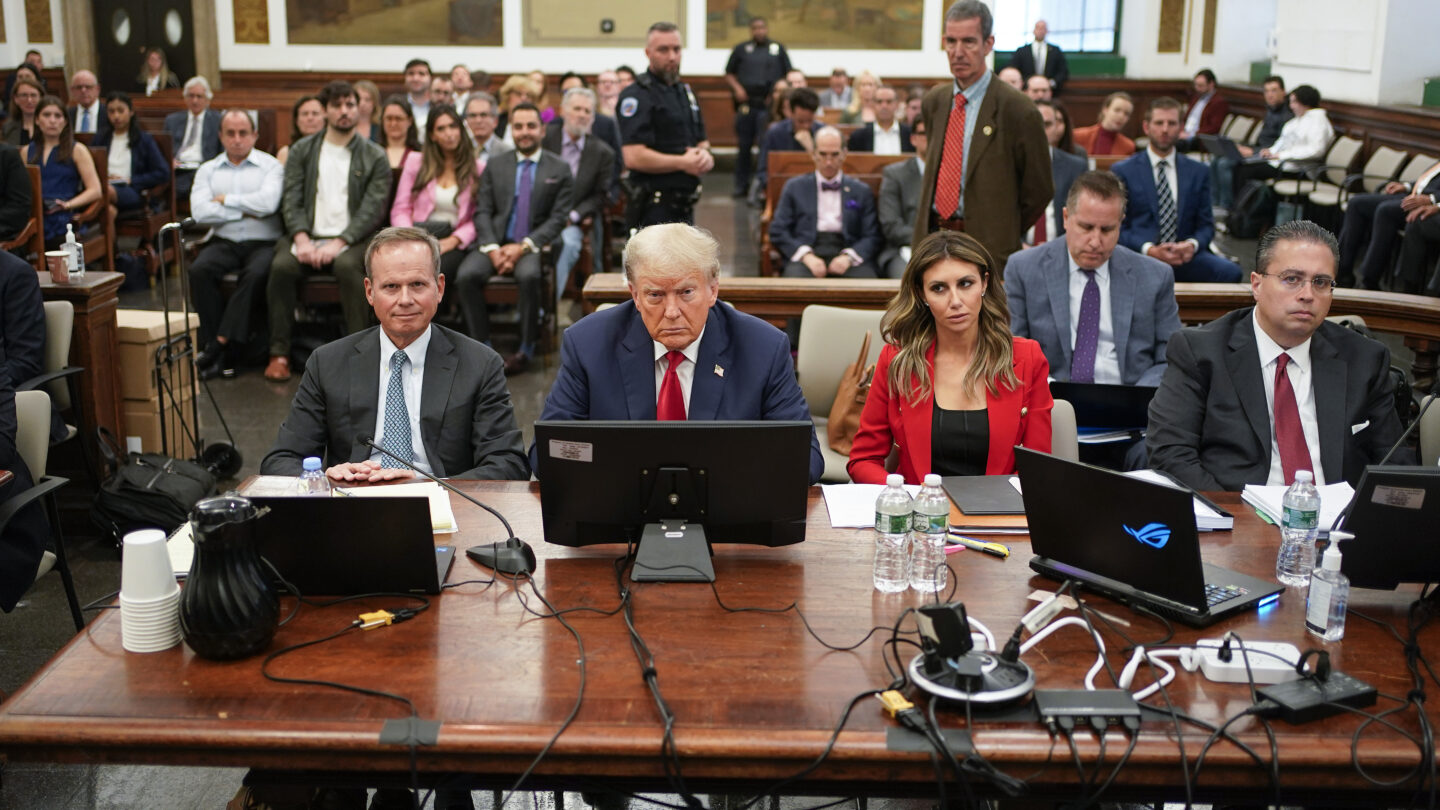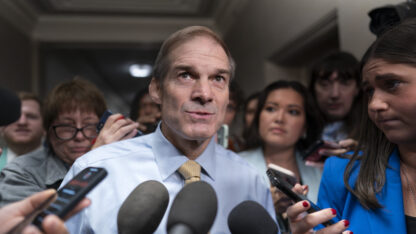Donald Trump’s political fundraising machine is raking in donations at a prodigious pace, but he’s spending tens of millions of dollars he’s bringing in to pay attorneys to deal with the escalating costs of the various criminal cases he is contending with as he moves further into the 2024 presidential campaign.
Campaign finance experts say using the money to pay for lawyers in cases not related to the campaign or officeholder duties appears to conflict with a federal ban on the personal use of donor dollars, even though the Federal Election Commission has ruled the prohibition doesn’t apply to so-called leadership political action committees. The massive amount of money going to lawyers also amplifies the urgency Trump is feeling to raise money both for the campaign and his legal defense, which is unfolding on multiple fronts.
Trump’s Save America political action committee has paid nearly $37 million to more than 60 law firms and individual attorneys since January 2022, Federal Election Commission records show. That amounts to more than half of the PAC’s total expenditures, according to an Associated Press analysis of campaign finance filings.
During the first half of 2023, Save America spent more on legal-related costs, over $20 million, than any other political committee that discloses to the FEC — more than the Republican National Committee, Democratic National Committee and National Republican Senatorial Committee spent during that period combined.
The bulk of the Trump PAC money went to law firms that have defended Trump against criminal charges or in civil lawsuits. Other attorneys paid with the contributions worked on behalf of Trump’s businesses, his children, former White House aides and employees of the ex-president.
Footing the legal bills for co-defendants and potential witnesses raises additional thorny ethical questions: Will the attorneys paid by Trump be more loyal to him or their clients? If clients feel indebted to Trump, will they be less forthcoming about what they know?
“The way these cases get built is you persuade the little fish to testify against the big fish,” said Randall Eliason, a former federal prosecutor and criminal law professor at George Washington University Law School. “Well, if the little fish’s lawyer is being paid by the big fish that’s less likely to happen potentially.”
The Trump campaign did not immediately respond to a request for comment. ___
Trump’s status as the first former president to be criminally indicted, his run for another White House term while defending himself in multiple court cases, and the loads of donor money flowing to lawyers are a trifecta unparalleled in U.S. history. Trump has denied any wrongdoing and he and his allies have blasted the long list of felony charges and lawsuits as political attacks meant to derail his 2024 campaign.
But the legal jeopardy has become his most potent fundraising tool. Trump’s claim that he’s the victim of a corrupt justice system determined to silence him and his supporters is a primary plank in his platform. And he’s turned the courthouse into a campaign stage to pound that message and fire up his supporters.
As Trump’s civil fraud trial in New York got underway earlier this month, he used the heavy media coverage as a megaphone. To the cameras stationed in the courthouse hallways, Trump denounced state Attorney General Letitia James’ case as “a witch hunt and a disgrace.” He and his company are accused by James of inflating the value of his real estate empire to deceive banks and insurers.
Trump also turned his surrender in Georgia on charges that he illegally schemed to overturn the 2020 election into a fundraising bonanza. His presidential campaign said it has sold about 47,000 T-shirts, coffee mugs and posters featuring the mug shot of the former president when he was booked in August at the Fulton County Jail. Overall, the campaign said it raised $9.4 million in the days following the photo’s release. That money is earmarked for political and campaign activities, not for legal expenses, according to the campaign. To help pay the legal fees, Trump’s political operation has also moved millions from his super PAC, MAGA Inc.
“The indictments are probably not expanding his coalition, but it’s certainly giving it greater intensity,” said Anthony Michael Kreis, a law professor at Georgia State University. “So people who are already supporting Donald Trump are probably going to dig in their heels and support him more.”
That’s true of at least some donors, who say they have no problem with their money going to lawyers.
“First thing I thought: What a crock,” said Robert Lee, a motorcycle repairman in Boca Raton, Florida, who made a small donation after the FBI’s Mar-a-Lago search. “None of this ever happened to anyone who wasn’t Trump.”
Asked about a campaign that spends so much on legal expenses, Lee said, “That would be fine with me.”
In addition to the New York business fraud case and the Georgia election case, Trump is battling federal felony counts arising from the Mar-a-Lago records case in Florida and the 2020 election subversion case in Washington, D.C. In a separate New York state case, he’s accused of making hush money payments during the 2016 presidential campaign to keep a sexual relationship from becoming public. Trump has denied the affair and pleaded not guilty to charges involving the payment.
The FEC declined to comment for this story, but it seems unlikely to act anytime soon. The agency is led by six commissioners, evenly split between Republicans and Democrats. Trump nominated all the GOP commissioners. One of the Democratic commissioners joined with the Republicans to declare in March the personal use ban didn’t apply to leadership PACs.
Saurav Ghosh, director of federal campaign finance reform at the non-profit Campaign Legal Center, criticized what he called the FEC’s “ blinkered and narrow view of the personal use prohibition.”
“The FEC is a dysfunctional agency that often fails to enforce the law because several commissioners don’t genuinely support the mission of the agency and favor a deregulatory approach to campaign finance laws,” Ghosh said.
The hands-off approach, he added, has allowed Trump to exploit people who give him money.
“It does feel like donors are being taken advantage of to advance Donald J. Trump’s personal interests,” Ghosh said.
In a recently unsealed court filing, Smith and his team of prosecutors described Trump’s decision to pay legal fees of co-defendants and potential witnesses as part of a pattern of “obstructive conduct.”
None of that matters to donors contacted by the AP. Dawn Smelcer of Fayetteville, North Carolina, a frequent donor to Trump’s 2024 campaign, said she’s backing Trump because of the “mistreatment” he’s endured.
“He’s fighting an evil and we’re helping him to fight that evil,” she said.








